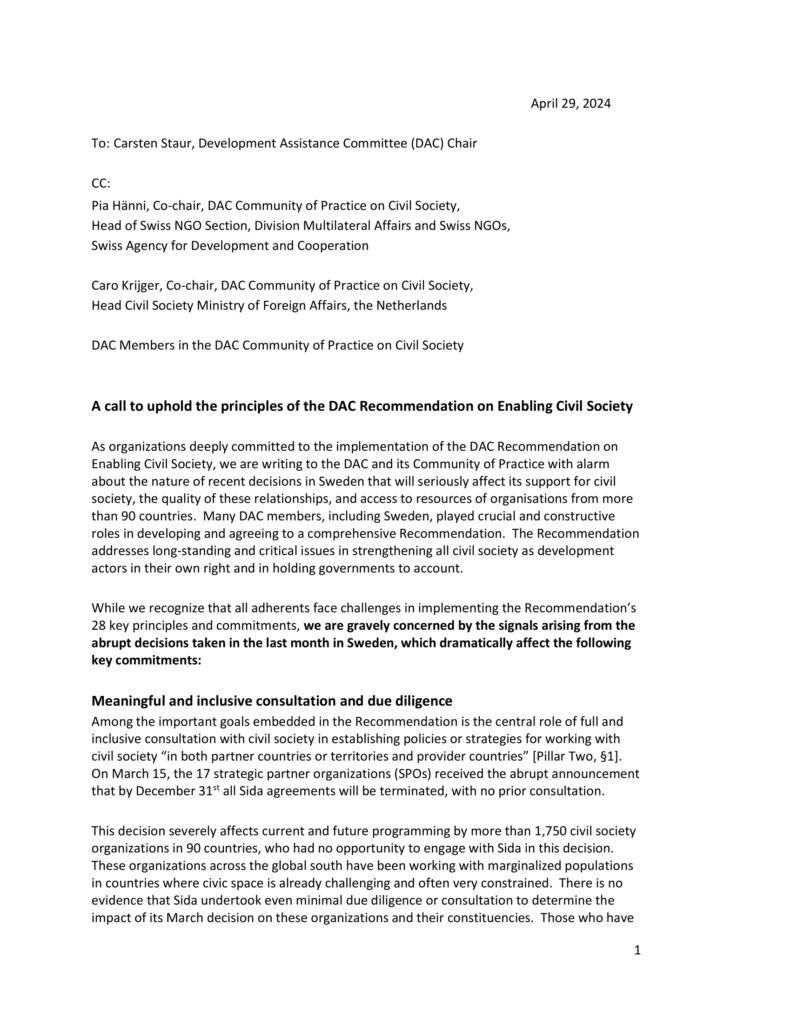Sweden’s Policy Changes and Global Civil Society
In a recent unsettling move, Sweden has announced drastic changes to its policies on supporting civil society, significantly impacting global civil society organizations (CSOs). These policy changes, highlighted in a letter addressed to the Development Assistance Committee (DAC), question Sweden’s longstanding commitment to civil society and the principles of inclusive and sustainable development.
Overview of DAC Recommendation on Civil Society
The DAC Recommendation on Enabling Civil Society is a cornerstone document advocating for the empowerment and meaningful engagement of civil societies across the globe. It emphasizes the importance of collaboration, inclusive consultation, and predictable support for CSOs, ensuring that they can function as independent development actors. Countries like Sweden have historically been champions of these principles, advocating for civil society roles in fostering democracy and development.
The Impact of Sweden’s Abrupt Decisions
The abrupt announcement by Sweden to terminate all agreements with strategic partner organizations by the end of the year, without prior consultation, sends a ripple of uncertainty and distress across partnerships in over 90 countries. This decision undermines the trust and reliability that hundreds of CSOs placed in Swedish support, jeopardizing their ongoing and future initiatives.
This shift not only contravenes the DAC’s recommendations for civil society engagement but also poses a severe threat to the sustainability of civil society operations, especially in regions where democratic spaces are already under threat. The potential withdrawal of Swedish support without adequate transition plans reflects poorly on its global leadership in development cooperation.
As Sweden holds a leadership position within the Global Partnership for Effective Development Cooperation, it faces critical scrutiny. The international community, along with Sweden’s development partners, urges a reconsideration of these decisions. They advocate for a collaborative approach to reforming civil society policies, ensuring that changes do not destabilize the crucial work carried out by CSOs worldwide.
In response, it is essential for all stakeholders involved to engage in dialogue, reevaluate these sudden policy shifts, and realign with the core principles of effectively supporting civil society as outlined by the DAC.
